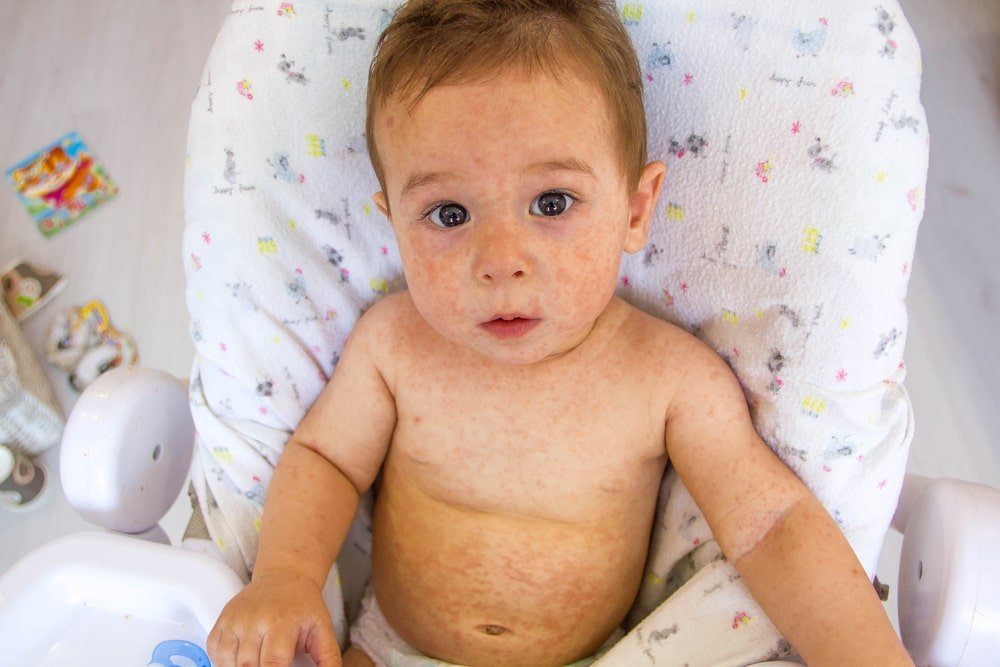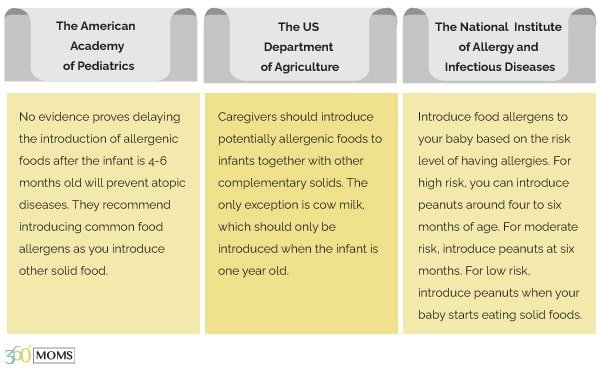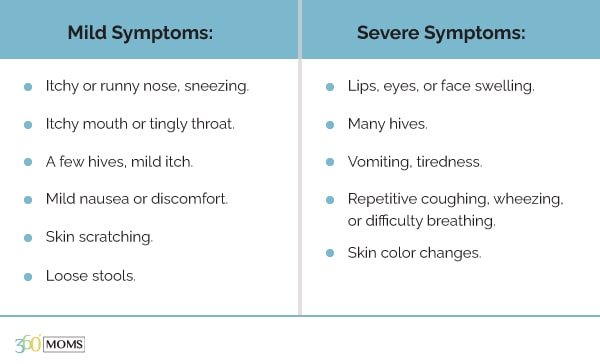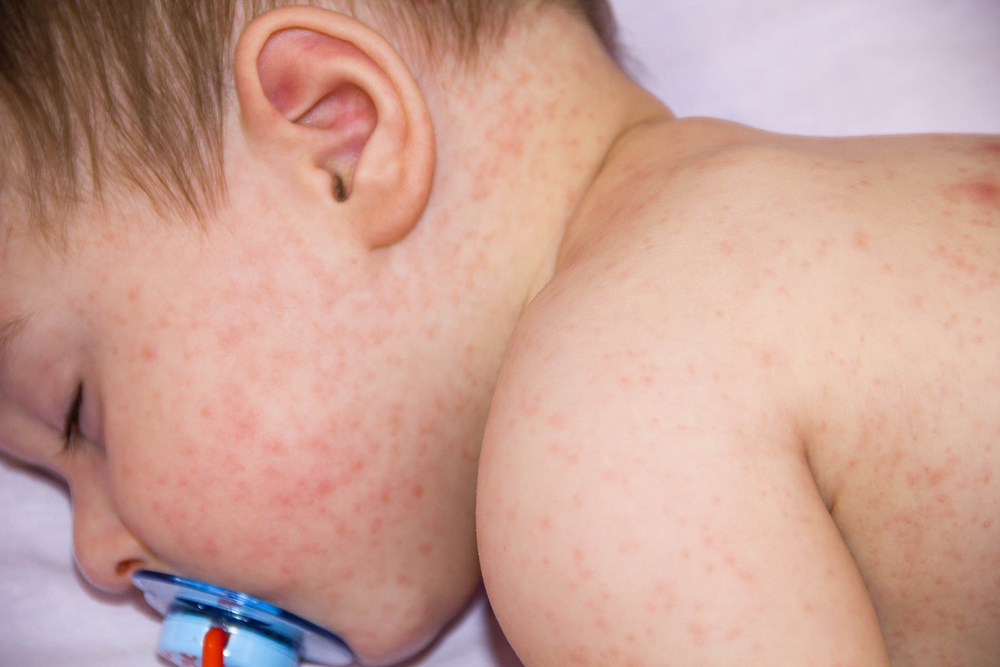Nutrition tips
Helping your baby with food allergies: a dietitians guide

This article was written on the 9th September 2021 and corresponds to the research and guidelines approved until now.
Your baby’s nutrition is of utmost priority, especially during the first 1000 days of life. It is a time that represents the fastest brain growth and a crucial time for your baby to meet their nutrient needs.
So, what do you do if you have been alerted that your baby is at high risk of developing food allergies? How can you ensure that your baby is not missing out on any essential nutrients if s/he has been diagnosed with a food allergy?
This article will put forward what the research has to say about the recommended age for introducing food allergens to babies and the common food allergens.
Additionally, we’ll discuss how a caregiver should first introduce a food allergen to their baby and the consequences of not accommodating a child’s diet who has been diagnosed with a food allergy.
Let’s dive into understanding how a food allergy takes place!
When your baby’s immune system has an exaggerated and abnormal reaction to certain foods by producing specific antibodies, they are experiencing a food allergy.
They have an allergic reaction because these antibodies react with the specific food and mark it as harmful when it isn’t.
What are the Common Food Allergens?
Food allergens are typically safe substances but can cause an allergic reaction to someone allergic to them.
The most common food allergens are:
- Peanuts
- Milk
- Eggs
- Wheat
- Soybeans
- Fish
- Shellfish
- Tree nuts
- Sesame
Who is at high risk of developing Food Allergies?
Defining which babies are at high risk of developing food allergies differs from one school to another. But the overall consensus is that most babies with a food allergy will have experienced eczema during infancy. So watch out for any skin rashes or itching your baby might have.
Introducing Food Allergens
“Why would I intentionally give my baby foods they’ll have an allergic reaction to? I’ll just avoid these foods as much as possible.” The latter was what old guidelines and dietitians recommended to mothers of infants with a high risk of having food allergies.
But in a breakthrough study named Learning Early About Peanuts (LEAP), they found that high-risk infants (infants with severe eczema or egg allergy) who are introduced to peanuts when they’re 4 to 11 months old, three times a week, are 80% less likely to grow into adults with a peanut allergy than those who avoided peanuts altogether.
This, therefore, prompted a shift in how more recent guidelines addressed the age at which caregivers should introduce food allergens to their babies.
While it was previously recommended to introduce common food allergens after one year of age, more recently, the overall professional consensus on introducing food allergens has shifted towards earlier introduction:

Symptoms of a Food Allergy
Knowing the signs of an allergic reaction can save your baby’s life if they’re ever in contact with foods they‘re allergic to. These symptoms include:

As for behavioral signs you need to look out for, they’re usually:
- Spitting out food or drink after feeding.
- Scratching their tongue.
- Pulling their ears disorderly.
- Having a squeaky voice.
When introducing allergens, you should look out for symptoms of an allergic reaction up to two hours after the exposure. It can take two or more exposures to a food allergen for food allergy symptoms to begin to show.
A Dietitians’ Recommendations to Introducing Food Allergens
- Introduce other non-allergenic solids first, start with non-allergenic solids to ensure the infant is developmentally ready for foods.
- Introduce new foods early during the day, after your baby’s first nap, or after they first wake up in the morning, give them the allergenic foods to provide you with the time to observe your baby in case of an allergic reaction.
- Introduce one common allergen per meal, do not introduce more than one allergen per meal, so you can identify what your infant is allergic to if a reaction happens. If they do react negatively, stop feeding them and call a doctor.
- Give your infant the tolerated allergen regularly. The golden rule is: “Introduce food allergens early and often.”
Continue feeding your child the food allergen if they have tolerated it by adding it into the regular food rotation you have for them. Try providing them the latter twice a week over many months to maintain a tolerance towards these allergens! Introducing the allergen once or twice has not shown to be protective.
- Make sure you introduce your baby to these foods at home when they’re not sick. Otherwise, you won’t be able to correctly identify the signs of their possible allergic reaction.
No baby-led-weaning for introducing allergens; this is because food that first comes into contact with the skin may cause skin irritation (redness around the mouth) that could be mistaken for an allergic reaction.
What are the Nutrition-related Consequences of a baby having Food Allergies?
Suppose your baby is allergic to a specific food. In that case, it’s important to stop feeding them the food immediately and seek medical help.
When it comes to your long-term plan of dealing with their allergies, you need to make a meal plan that considers these allergies and the nourishment of your baby. Some outcomes of not handling these allergies include:
- Stunted growth.
- Deficiency in essential nutrients like calcium, vitamin D, and magnesium.
- Weight loss.
- Insufficient energy and protein intake.
How can a Registered Dietitian help you if your baby is diagnosed with a Food Allergy?
Dietitians can help you overcome these nutritional issues by:
- Helping you identify food allergens and how to avoid them.
- Providing safe and nutritionally appropriate substitutes to food types your baby may be allergic to.
- Guiding you on how to read and interpret food labels.
- Providing solutions for challenging situations such as eating out, school, travel.
- Developing a personalized meal plan to meet nutritional needs and avoid deficits from abstaining from specific food allergens.
Note: Always consult with your pediatrician, who may refer you to a pediatric allergist before introducing foods if your baby shows signs of being at high risk of developing food allergies.
It’s essential to keep yourself updated on the guidelines for introducing allergenic foods to your baby. Remember, always keep an eye out on your infant after feeding them!














